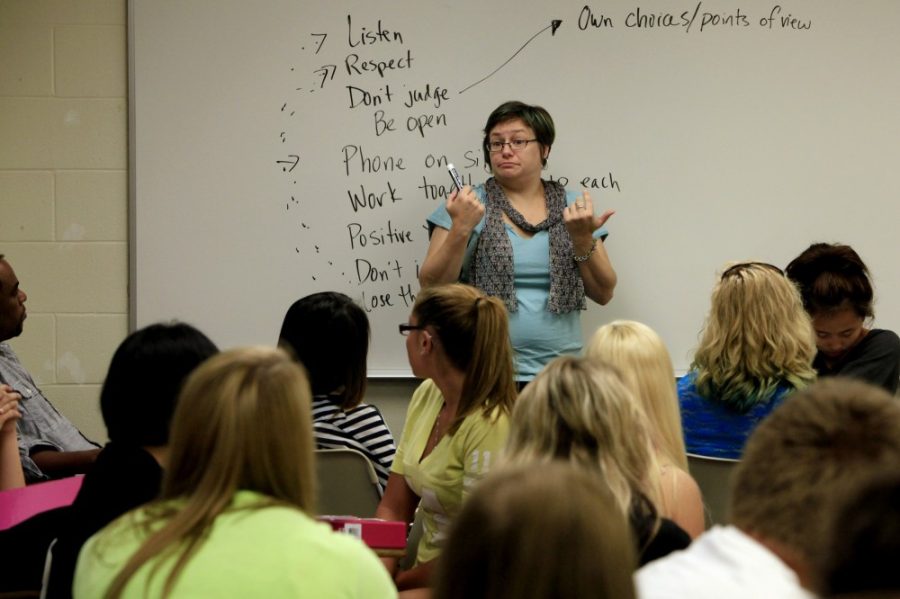MINNEAPOLIS — Students stepping onto Century College’s campus are greeted by a sign: “Welcome to the 2012-2013 academic year!” Below the message is a man in a graduation cap.
From the start, community colleges are emphasizing the end, trying to improve stubborn transfer and graduation rates as national pressure grows.
The challenge is sizable: Fewer than half of students who enter a community college earn a degree or transfer to a four-year school, or they are still enrolled six years later, according to a recent report by the American Association of Community Colleges.
Colleges now begin their efforts the moment students arrive. In some cases, even earlier.
Alexandria Technical and Community College interviews students about their goals before they enroll. Inver Hills Community College groups first-year students into “learning communities.” Itasca Community College takes the full first day to orient students, inviting them to “Let’s Chat” sessions and a picnic.
This fall, Century College in White Bear Lake is requiring students who tested into developmental reading — all 1,450 of them — to take a three-credit course called “New Student Seminar.”
“For a long time, community colleges’ mission was opening up access,” said Melinda Mechur Karp, senior research associate at the Community College Research Center. But in recent years, “there’s increasing recognition that isn’t enough. It’s not enough to say, ‘Come on in,’ if we can’t get you through.”
Aug. 28 was the first day of college for most of Cathy Crea’s “New Student” class at Century. They spent the first half-hour learning about what they have in common — and what makes them different. “I’m a carnie at the State Fair,” one woman said. “I own my own business,” said another. Later: “I have a kid.”
“Stand up if you have a kid,” Crea said. The four standing shared ages, names.
The college hopes that students will find within these small classes a sense of community and responsibility to one another, as well as study skills and career planning.
Crea, who has taught the “New Student” course since it began as a pilot program, believes it “definitely” makes a difference, especially for students who are the first in their families to go to college.
“Many times, these students’ lives have kind of conspired against them,” Crea said. “They’ve had a lack of opportunity because of poverty, institutional racism, language barriers.
“I’ve seen this class help level out the playing field so that they can turn their lives around and be successful.”
Reports reveal a relationship between taking such courses and staying in school, according to the Community College Research Center at Columbia University’s Teachers College.
“If someone were to say, what’s the one thing that works, student success courses would be toward the top of my list,” Mechur Karp said. Meanwhile, studies show that many of community colleges’ other efforts “have had less impact than we had hoped.”
Mechur Karp said that when done right, the courses “essentially serve as a prolonged group advising period,” filling in for an advising staff that, at many colleges, “is understaffed, under-resourced and overburdened.”
According to the American Association of Community Colleges report, released in April, “The community college landscape is littered with lost credits that do not add up to student success.”









